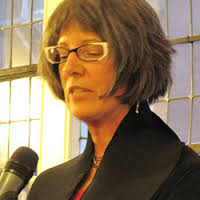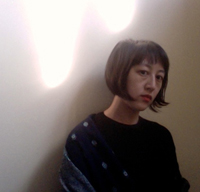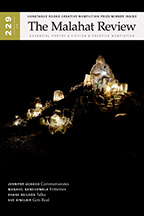Deep Places and Spaces:
Phoebe Wang in Conversation
with Jan Conn

Malahat books reviewer Phoebe Wang talks with Jan Conn, poetry judge for the 2015 Open Season Awards, about creativity, translation, and the ties between art and science (yes, it exists!).
I’d like to hear a bit more about your work as a biologist and your research on insects that transmit pathogens, and how it informs your poetry. From the point of view of most humans, mosquitos are the pest, the plague carriers and the parasite. Yet who knows how insects view us? As hosts, as partners-in-crime or as passive carriers? Many Canadian eco-poets now also attempt to reverse or flip the human-centred view of the world. Do you believe this is possible?
I don’t think my research on the adaptation, evolution and ecology of malaria-transmitting mosquitoes in Latin America informs my poetry directly. I imagine this occurs obliquely or subconsciously, although I think about them often: where they feed and what odour signatures are most attractive to them, how frequently they feed on sugar sources (and which ones?) and how frequently on blood, where they rest that protects them while developing their eggs, what cues they respond to when seeking a body of water to deposit their eggs, where they mate (these mosquitoes don’t swarm), and what the world looks like to them through the many hexagonal facets that comprise their eyes (apparently a sort of mosaic). I suspect that travel, communicating, and working in Spanish and Portuguese, in remote Amazonian areas, influence my poetry more profoundly. I notice and record events that seem arresting: graffiti, architectural innovation, local museums, natural history.
There is good evidence that parasites are driving the behaviour of their mosquito hosts. I expect that to a mosquito, humans are nothing more than a potential meal. After all, when the female mosquito is questing for a blood meal, she is biologically compelled to do so because she converts the proteins in blood to eggs to create the next generation of mosquitoes. Of course we can’t know how mosquitoes might view us – so imagination is the best we can do so far. I don’t know whether or not it’s possible to alter the human-centered worldview. It’s possible. I think what’s challenging, exciting and stimulating are the attempts - even the failures are fascinating. I admit I am pessimistic: humans may be too greedy, too selfish.
In a recent interview with Canadian Literature, you spoke about being on the road to the edges of knowledge in your poetry. And in your poem, “A Life Unlived Any Other Way,” you write, “At the edge of the edge I pause. // The Renaissance did not reach/every corner of the globe.” It’s easy for young people to feel like everything has already been explored or discovered. How might younger poets explore new roads and to be astonished?
Creativity and discovery can go in any direction, but I think a valuable thing to do is to get off a path/road/edge altogether, and explore what feels fresh, unusual, new. It’s not really possible to be proscriptive. What I do is keep my eyes open, focused on my immediate environment and on the present as much as possible, read and read poetry and lots of other things that fascinate or excite me, look hard at stimulating art, travel, and ask questions. I’m very curious. I always find things that astound me. Probably I seek them.
Your use of juxtaposition gives the feeling of compressed time and distance. For instance, in “Pyrenees” the speaker travels back in time to a family incident, then skips to the Spanish countryside, a trip to the Prado museum in Madrid, and then contemplating a trip to the Pyrenees. I love this kind of reshuffling and rearranging of incidents and images. Do you think your work poem attempts to find a different kind of order or chronology?
My poems are increasingly about imagined people, and although sometimes the incidents, places, and landscapes are real, both people and landscape are transformed during the creative process. This gives me great freedom (and perhaps permission) to ransack images and events I read or learn about through conversation and observation. I can moor these occurrences in time in poetry-logic that best suits my inner ear and eye. I think this can be particularly interesting because we often recall charged events in non-linear ways.
Poetry can be a vessel for self-discovery, and emerging poets attempt to develop their own identities, voices and selves through their writing. Yet in Jaguar Rain: The Margaret Mee Poems and many of your ekphrastic poems, adopting the voice of other speakers is also a means of discovery. Where do you begin with inhabiting other voices, and where does it take you?
My process varies. Some of the women and men in Edge Effects had their inception in images by the artist Marlene Dumas. I studied Dumas’ art for a few years, went to several shows, read a lot (reviews, interviews, her history in South Africa and Amsterdam) and pored over her style. Then I put all of this material away and, feeling saturated with Dumas’ world, the poems that I wrote felt quite natural, distilled from all that I had perceived and mulled over. Even though some of these poems took me to dark places, they were memorable dark places, and they altered my mood and perceptions. I developed empathy for these people and their lives. Other times I might read about someone in an online newspaper or hear a story on the news that strikes me. Where a given poem takes me depends. Some voices are more resonant than other; some pull me down or under, forcing exploration of deep places and spaces.
Many of your travel poems enfold place names, words and phrases from Portuguese, Spanish and other native dialects. You have often included a glossary at the end of your books. When I attended the Disquiet Literary Program in Lisbon last summer, one participant in the poetry workshop was concerned about using other languages in his work. He didn’t want to be a cultural tourist and as a few of the students were from Asian and Hispanic backgrounds, we had a long but unresolved discussion about appropriation and permission. What advice can you give regarding these concerns?
In my case, most of the Portuguese, Spanish and occasional French phrases feel natural. I grew up in Quebec, have been speaking Spanish since I was in my early 20’s, and Portuguese, albeit not fluently, since 1987. I have always tried, and often failed, to use only those expressions or words in other languages that I felt were not truly translatable into English (context is everything), because they became part of my interior dialogue or dreams. I think it’s important to consider carefully, in each case, why one is using another language in a poem or other writing. It can derail creativity if it is forced, or is there only for affect. It has to make the poem better, richer, more authentic.
In many ways, I don’t know that I’m a Canadian until I travel elsewhere. I couldn’t write while in Madrid or Lisbon, only take notes that I can turn into poems when I return home, as though home is where the creative process can take hold. Do you have a similar experience of being Canadian? And is there a tension between where you visit, where you live and where you can be creative?
Because I have a demanding job and travel often, I have trained myself to write anywhere. In fact I love writing in trains, cars, on planes, buses. Transition and threshold places and states are always alluring to me. I feel suspended, and certain types of associative connections seem to come more readily. I also write when I return to North America, of course, and I think this is more because the return itself creates many levels of distance that are invaluable in writing and especially in editing – as opposed to being where the creative process surfaces.
Would there be any reason why you might stop reading a poem without finishing it?
Many reasons! Boring beginning, flat, overly descriptive language, bristling with cliché, lack of originality. I make an effort to read poets who are better than I am. I want to become a better writer. This won’t happen if I focus on mediocre work.

Phoebe Wang
* * * * * * * *
Read full guidelines for the 2015 Open Season Awards (deadline November 1, 2014).









